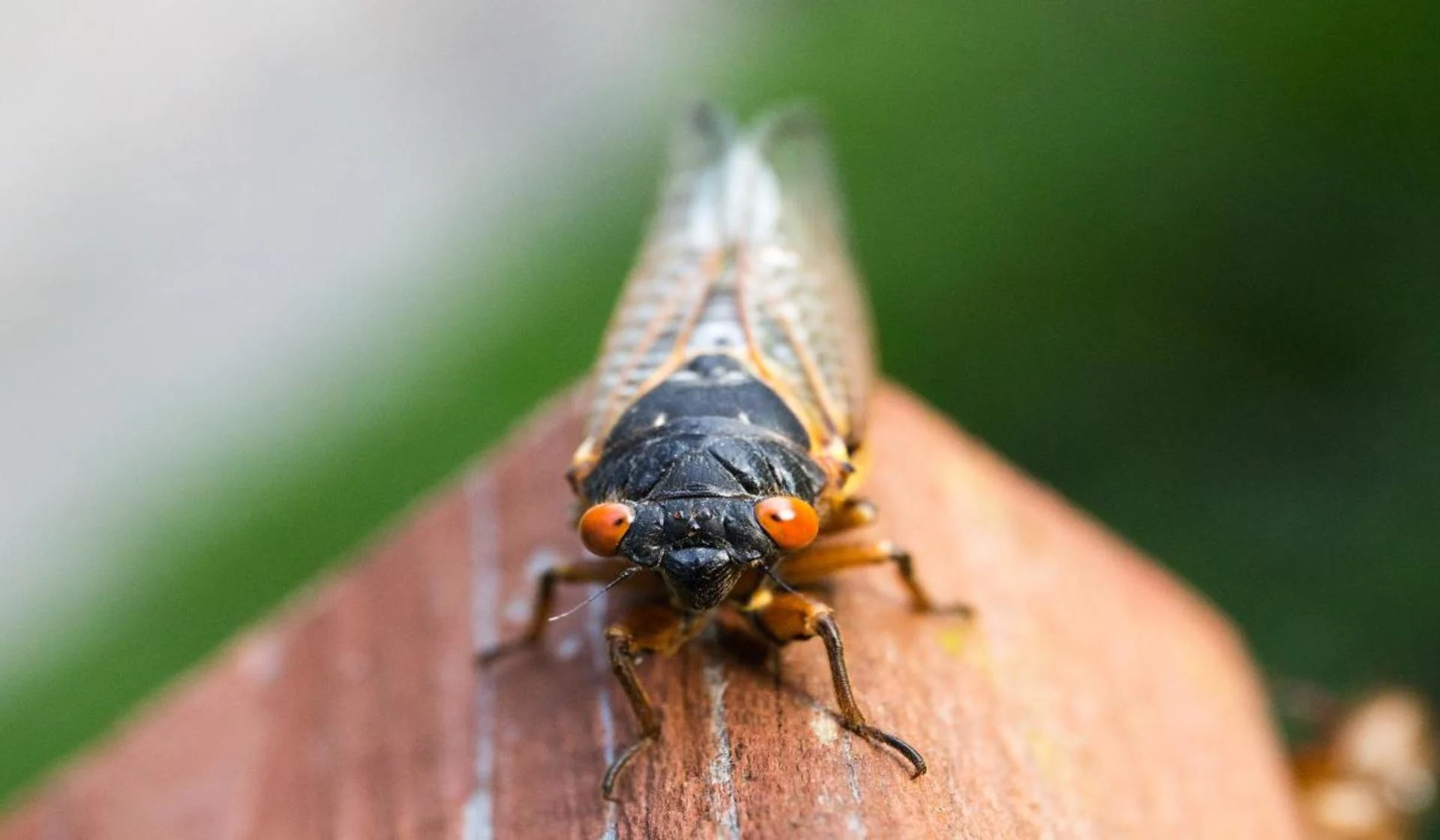
From car accidents to airplane delays, four strange cicada headlines
We can't seem to stop talking about cicadas.
After spending 17 years underground, billions of Brood X (Brood 10) cicadas have taken over 15 U.S. states.
Currently, there are trillions of them crawling around areas between Georgia and New York, and with numbers that large, it's no surprise they're making headlines almost daily.
Here are some of the stranger ones we've seen.
A CICADA CAUSED A CAR ACCIDENT
Earlier this week a cicada in Cincinnati, Ohio caused a car accident after it flew through the window, hitting the driver in the face. Thankfully, nobody was injured, but the car sustained significant damages:
PRESIDENTIAL PRESS AIRPLANE DELAYED
Reporters headed to the United Kingdom to cover U.S. President Joe Biden’s first overseas trip were delayed seven hours when their plane was taken over by cicadas, the Associated Press reports.
It's not clear exactly how the cicadas grounded the plane, and weather may have also played a role. But in the end, the aircraft was switched with another one.
FDA ISSUES A WARNING
Here are some things you might not know about cicadas: they're harmless and benefit to the environment.
They prune mature trees, aerate the soil, and in death, their bodies provide nitrogen to trees.
One more fact: they're (apparently) tasty, given the numerous reports of dogs (and cats) gorging on them.
People have been eating them too. That caught the attention of the U.S. Food and Drug Administration which felt compelled to issue a warning because cicadas are closely related to shrimp and lobster and may trigger a reaction in people with shellfish allergies.
If you aren't allergic to shellfish, you're more than welcome to eat cicadas.
Experts say they're perfectly safe and are of antioxidants. They're also a sustainable source of protein but if you choose to indulge, it's recommended you cook them at a high temperature to lessen the risk of food-borne illness.
One thing to keep in mind: Animals and humans alike sometimes find cicadas difficult to digest, due to their hard exoskeleton.
THEY MAY BE APPEARING ON WEATHER RADAR
It's not uncommon for large flocks of birds, bats, or insects to show up on weather radar, so when the National Weather Service in Baltimore-Washington picked up a large mass on the radar that was "biological" in nature, experts assumed it was cicadas:
It's possible, given their large concentrations in the area, but Nancy Hinkle, a professor of entomology at the University of Georgia, told CNN she has her doubts.
That's because cicadas don't fly in groups and don't swarm, Hinkle says, suggesting it may have been another insect, given cicadas aren't found high in the atmosphere.
Thumbnail image courtesy: Michael Kropiewnicki/Pexels.











